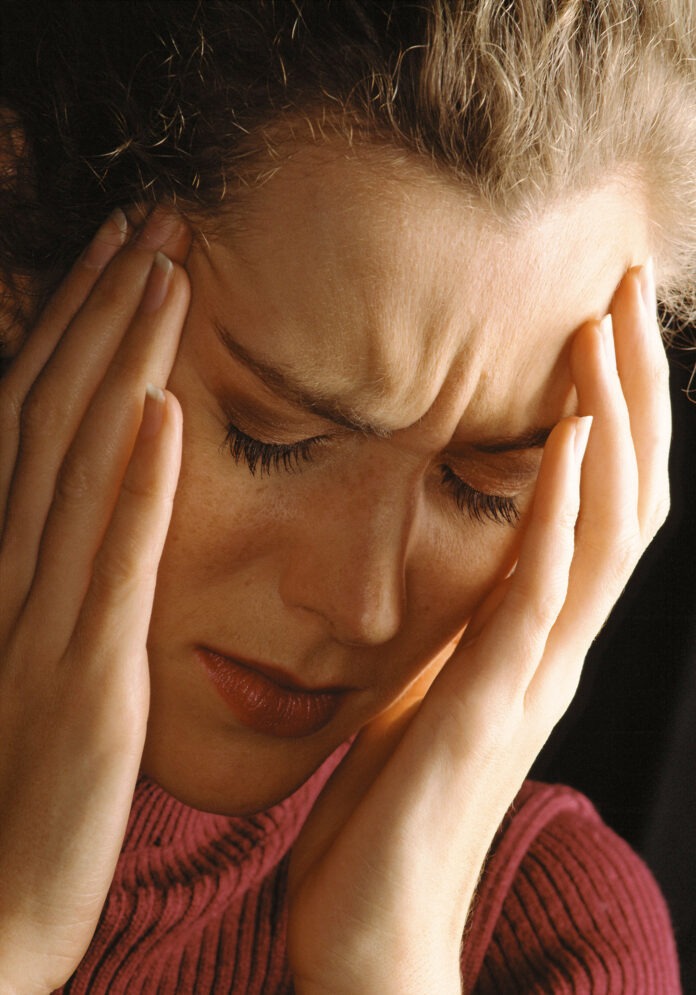Did you know that anxiety disorders are the most common mental illness in the U.S., affecting 40 million adults aged 18 and older? Many people are not able to enjoy their life because they are so consumed by fear and anxiety. How could you possibly fulfill your potential if you are paralyzed by fear? Albert Ellis, a very famous psychologist who died several years ago, wrote a book which expressed the idea that you have to control your anxiety or it will control you.
The problem is that it is often not that easy to control your fears. For many people, it is extremely challenging to overcome their anxiety. If you already have a lot of anxiety, it is very difficult to step out of your comfort zone. However, if you wish to grow and be successful, you need to take some risks. If fear or anxiety is stopping you from doing what you want to be doing with your life, there is a good chance you are going to be sad or depressed about this situation. It is not surprising that anxiety often goes hand-in-hand with depression. Overwhelming fear can lead to physical symptoms as well.
Anxiety is often a source of other disorders, including substance abuse or physical addictions, which results from attempts to quell the anxiety. It may also contribute to conditions such as irritable bowel syndrome or migraine headaches. Other symptoms that often occur with anxiety include pain, nausea, weakness, and dizziness. Anxiety can also contribute to physical illnesses such as heart disorders, chronic respiratory disorders, and gastrointestinal conditions.
There are more reasons for fear today than there were in the past. As an example, in the past many people were afraid to fly for fear the plane might crash. However, today, many people have fear that there could be a terrorist attack or a hijacking on the plane.
Although it appears that one’s anxiety is due to factors occurring at the present time, the truth is that most fears come from childhood. If you grew up receiving lots of negative messages, the result is often low self-esteem and/or much anxiety. Research studies have demonstrated that the average child receives 96 percent negative feedback from parents compared to 4 percent positive. Is it any wonder that many people do not have very high self-esteem? If you do not feel good about yourself, there is a good chance you will not want to take too many risks. The odds are, you believe, that the results will not be positive. As a result, there will be a lot of anxiety when you need to take risks and step out of your comfort zone.
Children of parents who were very negative or critical, or even worse, abusive, rarely realize that it is the parent who has the problem. Instead, the children blame themselves for the unjust treatment. They then carry these negative beliefs or fears into adulthood, continuing to believe that they are inadequate. Unless a person becomes aware of where all the negativity came from and then replaces it with more positive beliefs, the anxiety, the low self-esteem and the feelings of inadequacy are not going to disappear.
As adults, these people do not feel they deserve to enjoy a good life. This results in a variety of problems such as eating disorders, obesity, risky behaviors, abuse of alcohol and drugs. In addition, they are less likely to experience professional success or personal happiness. They also find it more difficult to bounce back from setbacks.
The good news is that you don’t have to continue holding on to these fears and anxieties that are so self-limiting.
You can let them go. One excellent method to eliminate these “negative core beliefs” is with the use of hypnosis. With just a few sessions you can obtain the relief you desire.
Phil Rosenbaum











